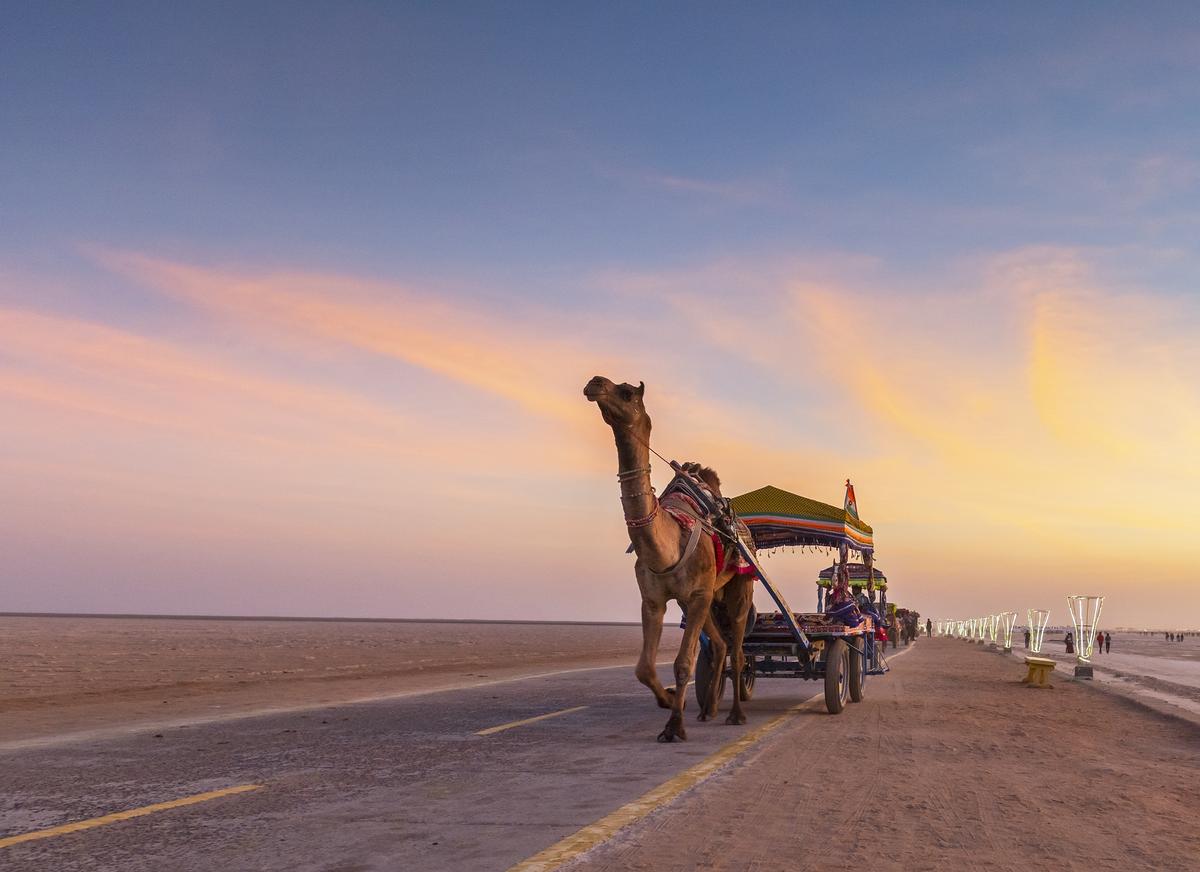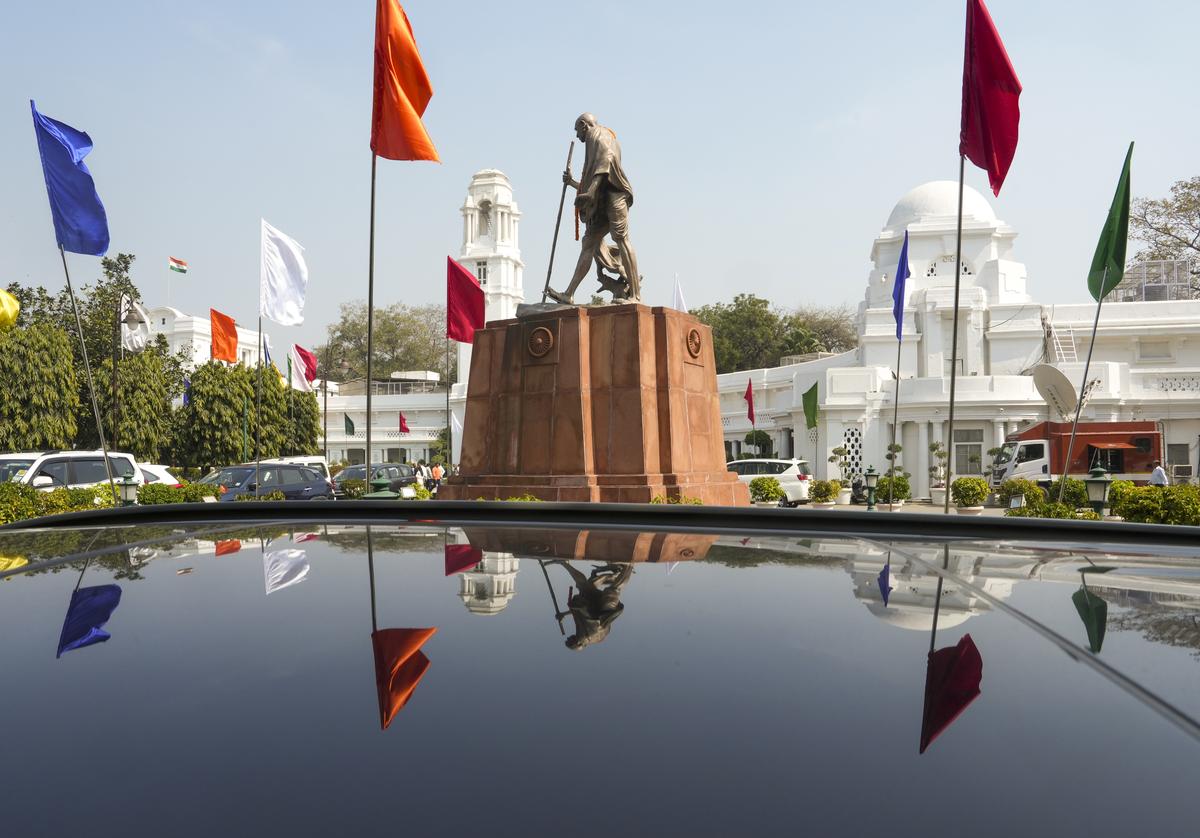FILE -Neneh Cherry poses for photographers upon arrival at the Burberry Spring Summer 2024 fashion show on Monday, Sept. 18, 2023 in London. (Vianney Le Caer/Invision/AP, File)
| Photo Credit: Vianney Le Caer
Welcome to this edition of The Hindu on Books Newsletter. The shortlist for the Women’s Prize for Non-Fiction 2025 has been announced and the six books on it are: What the Wild Sea Can Be: The Future of the World’s Ocean by Helen Scales (Grove Press), Raising Hare by Chloe Dalton (Canongate/PRH), A Thousand Threads by Neneh Cherry (Simon&Schuster), The Story of a Heart by Rachel Clarke (Simon&Schuster), Private Revolutions by Yuan Yang (Bloomsbury) and Agent Zo: The Untold Story of Courageous Resistance Fighter Elz˙bieta Zawacka by Clare Mulley (Hachette India). Scales, a marine biologist, shows the precarious state of the seas and what can be done to avert climate catastrophes. Clarke, a doctor, writes the story of a heart transplant, and death and life. Dalton’s book is a wonderful observation on nature and environment gained while tending to a baby hare or leveret before sending it back into the wild where it belongs. Cherry’s memoir is of an unusual childhood and how it shaped her musical journey. Yuan tells the story of four Chinese women post the 1990s push for reform, and Mulley brings to the world the tale of a forgotten Polish woman resistance fighter during World War II. In its second edition – last year Naomi Klein won the inaugural prize for Doppleganger: A Trip into the Mirror World – the Women’s Prize for Non-Fiction had announced a strong longlist which included Ootlin by Jenni Fagan, a takedown of the U.K. care system, Why Fish Don’t Exist by Lulu Miller, a study of eugenics among other things, and Wild Thing, a biography of Paul Gauguin by Sue Prideaux.
In reviews, we read a portrait of the Gujarati community, an excerpt from Gopalkrishna Gandhi’s forthcoming book, Kavery Nambisan’s new novel and Sanam Mahloudji’s Women’s Prize for Fiction 2025-longlisted novel.
Books of the week

Camel Cart Ride at White desert of Greter Rann of Kutch, Gujarat, India
| Photo Credit:
schita
Who are the Gujaratis, a community which has 55 million people in India and possibly 6 million of them abroad? Salil Tripathi gets down to looking beyond the stereotypical representations of the community in his new book, The Gujaratis (Aleph). In his author’s note, Tripathi says Gujarati is a language, not a religion, nor a caste, so the Gujaratis in his book belong to all the strata of society, and include Hindus, Muslims, Paris, Jains, Buddhists, Dalits, Christians, and others who identify with other ethnicities and may be of no faith. He researched for the book extensively, making seven visits to Gujarat between 2015 and 2018. In his portrayal, he explores the complexities of his people and finds out “how we earn, how we politick, how we create, how we pray, how we eat, how we play and how we kill.” In his review, Jerry Pinto calls the biography a magisterial summation of a community often accused of having only mercantile interests. “Tripathi reminds us of the many beautiful gifts Gujarat has brought us, from its creative experiments with vegetarian food to the bhajans of Narsinh Mehta,” he contends.
Set in a village in the years leading up to Independence, Kavery Nambisan’s new novel, Rising Sons (Penguin), is about family dynamics and deeply ingrained societal divisions. It is an old-fashioned chunky family saga, writes Latha Anantharaman in her review. The authoritarian Devaraya and his cautious wife Gowru bring up two sons and two daughters. Their story begins with a hint of a secret in a letter opened and read by Devaraya, and then hidden away from his wife. That secret will explode halfway into the book, seeming to end everything. Set in the pre-Independence era, in a fictional Karnataka village, Kesarugattu is populated by 57 families who will eat for a year if the rains bless their dry lands. British masters are still caning brown-skinned students; newspapers are reverently read out loud and “God save the King” is shouted against a background hum of revolt. Nambisan’s title itself points to casual exclusions, as if daughters are not rising. Devaraya’s foster daughter Chinni, politically and socially alive, fades undeservedly into the background, unlike the details reserved for characters like Anna. “The writer is being true to the age in which her story is set, or possibly she is cleaving faithfully to an actual family history. But the reader of today longs to hear more from Chinni.”
Sanam Mahloudji’s The Persians (Fourth Estate), longlisted for the Women’s Prize for Fiction 2025, tells the story of three generations of Iranian women who live between America and Iran. The shortlist will be announced tomorrow, and we will have the details next week. In her review, Pranavi Sharma says that the book wants to be several things at once. What the novel does not quite do, however, is push its characters beyond their archetypes. Shirin and Seema, daughters of Elizabeth, fled Iran during the 1979 Islamic Revolution. Seema does not survive the crossing into the 21st century, and her daughter, Bita, raised in the antiseptic privilege of American suburbia, never quite gets over her absence. Meanwhile, Niaz, Shirin’s daughter, remains in Tehran with her grandmother Elizabeth, and learns what it means to stay behind. “The rebellious exile, the sorrowful grandmother, the privileged American daughter, all remain somewhat attached to their assigned roles. At times, it feels as if the book is afraid to let go of the past. But most importantly, Mahloudji’s preoccupation remains with the fact that history ultimately makes strangers of us all.” Mahloudji writes intimately, notes Sharma, of a woman carrying grief in her body, and how exile sharpens the tongue.
Spotlight

New Delhi: Mahatma Gandhi statue on the Delhi Legislative Assembly premises on the first day of the first session of the newly-constituted eighth Delhi Legislative Assembly, in New Delhi, Monday, Feb. 24, 2025. (PTI Photo/Manvender Vashist Lav)(PTI02_24_2025_000279B)
| Photo Credit:
–
Two questions are at the heart of a book of personal history of post-Independence India: “Is independent India impossibly fragmented or indissolubly united?” Taking a cue from Ruskin Bond who had written that “Religion did not make me an Indian. But history did. And in the long run, it’s history that counts,” Gopalkrishna Gandhi decided to chronicle some remarkable events and indelible moments from India’s modern history, from the assassination of Gandhi, his grandfather, in 1948, to Narendra Modi’s reign which began in 2014. Read an excerpt from The Undying Light: A Personal History of Independent India (Aleph).
Browser
- Geotechnography (India Viking) by Samir Saran and Anirban Sarma maps the rapid technological advances that are mediating all interactions – with the market, the government and also with each other. They analyse the forces reshaping the modern world and examine how the convergence of geography and technology is redefining power and rewriting rules.
-
How are elections conducted in India? Who funds it? Investigative journalist Poonam Agarwal looks into the Indian electoral machinery, including the electoral bonds scheme, which has now been termed unconstitutional by the Supreme Court, to find out about the inner workings of politics in her new book, India Inked (Bloomsbury).
- Letters from Gaza (Penguin) by Mohammed Al-Zaqzooq and Mahmoud Alshaer are writings on Gaza written over the months after October 2023 when Hamas attacked Israel and Israel retaliated with a relentless pounding of Gaza, killing thousands and displacing thousands more. This book witnesses a new genre of war writing in Palestinian literature though Palestinians have been living in a state of conflict since 1948.
-
Post the JCB Prize for Literature win for Lorenzo Searches for the Meaning of Life, Upamanyu Chatterjee’s novellas are being published by Speaking Tiger. Replete with his characteristic wry humour and witty storytelling, The Hush of the Uncaring Sea: Novellas, 2018-2025 includes three unpublished novellas and a bestseller.
Published – April 01, 2025 01:10 pm IST
